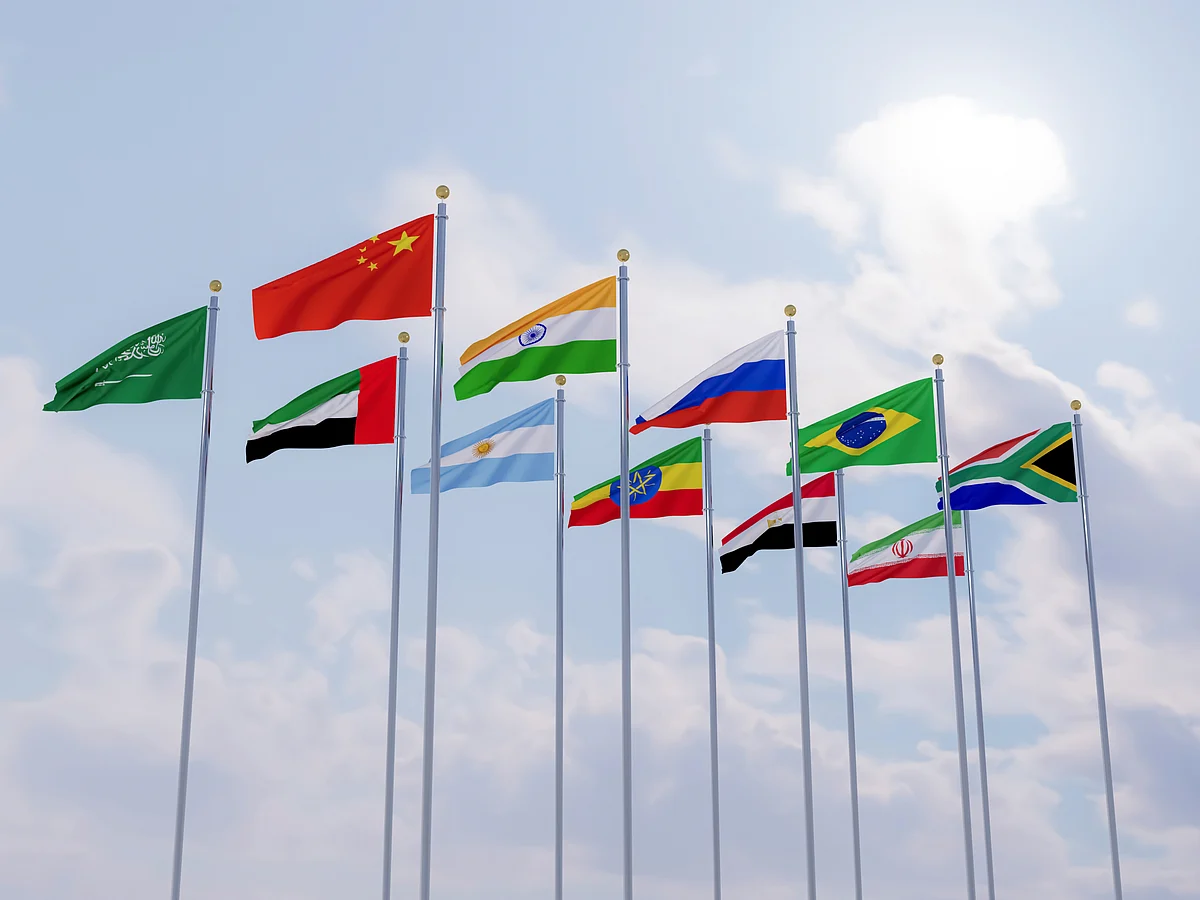BRICS and the road to multipolarity: Rio shows a softer power shift
Trade surges and steady diplomacy define the UAE’s approach to the expanding bloc

The 2025 BRICS Summit was convened in Rio de Janeiro, Brazil, from 6-7 July 2025, amid heightened trade tensions triggered by a series of stringent tariffs imposed by the US and great geopolitical flux. The expansion of BRICS in 2024 and 2025 — expected to continue — has increased the bloc’s economic clout and global standing. The BRICS countries represent nearly half of the world’s population and a third of global GDP.
Leaders and officials from 20 countries participated in the Rio summit, evenly split between full members and partner countries, to strengthen South–South cooperation for inclusive and sustainable governance.
The UAE took part in the summit for the second time as a BRICS member, represented by a high-level delegation led by Sheikh Khaled bin Mohamed bin Zayed Al Nahyan, Crown Prince of Abu Dhabi. That underscores the UAE’s dedication to fostering its relationship with BRICS and confirms its continued commitment to strengthening its strategic partnerships with the bloc, collectively and individually. The UAE currently ranks 14th globally among BRICS’s trading partners. In 2024, trade between the two parties reached $271.6 billion, compared to $150.5 billion in 2019.
Strong partnership
In his address to the summit, Sheikh Khaled emphasised the importance of fostering strong partnerships based on sustainable development and mutual prosperity as it would “serve our peoples and enhance the interests of our countries.” He emphasised the significance of BRICS as a platform for addressing global challenges, including economic, humanitarian, and geopolitical issues.
Sheikh Khaled reaffirmed the UAE’s support for constructive dialogue and economic integration as central pillars for achieving global stability. He also reaffirmed the UAE’s support for expanding BRICS to strengthen strategic cooperation. He highlighted the importance of collaboration among countries, regional blocs, and international organizations. Sheikh Khaled concluded with a call for unity, stating that “By working together, we can overcome challenges and create a brighter, more prosperous future for all.”
Fairly predictable, the Rio summit reaffirmed the importance of a multipolar international system, calling for reforming the UN, including the Security Council, to make it more representative and effective, with a greater role for developing countries.
Unified stance
For the first time, BRICS members agreed on a unified stance regarding proposed reforms to international financial institutions such as the International Monetary Fund and the World Bank Group. The reforms sought to make these institutions more representative, effective, and reflective of the growing weight of the Global South.
Promoting trade in local currencies was a particular priority for BRICS countries. The bloc aims to double the volume of cross-border settlements using national currencies. To that end, the communique called for the development of cross-border payment platforms (outside of SWIFT) and the expansion of the New Development Bank’s role.
Without naming the US or the Trump administration explicitly, the Rio Summit expressed “deep concern” over the rise in unilateral tariff and non-tariff measures that contradict World Trade Organisation (WTO) rules and “threaten to reduce global trade, disrupt global supply chains, and increase uncertainty.”
In conclusion, the 2025 BRICS Summit was of significant importance amid efforts by the Global South to reshape the international order and reduce reliance on traditional Western economic and political structures. However, the restraint shown in Rio de Janeiro marked a departure from last year’s summit in Kazan, Russia. The Rio declaration was moderate, non-confrontational and intentionally toned down. In fact, the BRICS countries tried to avoid provoking a loud clash with the US administration. More importantly, the absence of the Russian and Chinese presidents, who typically push for a more assertive anti-Western stance, may explain a low-key BRICS summit.
Sultan Khalifa Al Rubaei is Head of the Training Sector at TRENDS Centre and a researcher specialising in economic affairs.
Network Links
GN StoreDownload our app
© Al Nisr Publishing LLC 2025. All rights reserved.